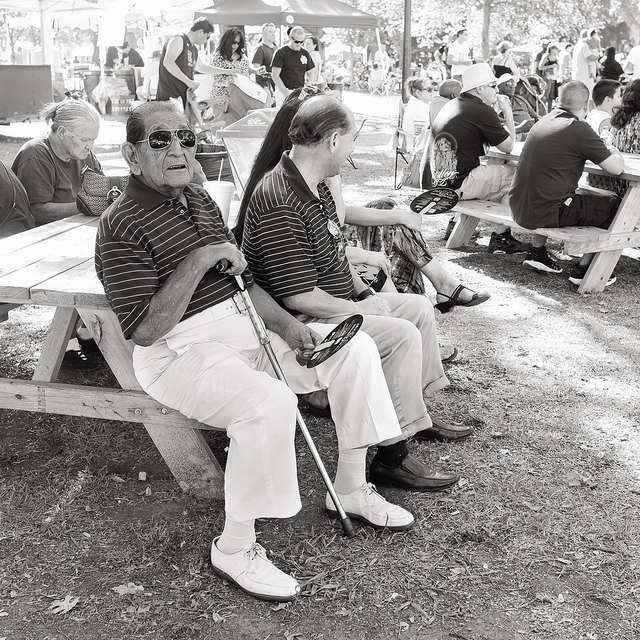It’s a day like any other as my two children and I make our way home from school through the winding cobblestone streets of Sarria, our local village just within the city limits of Barcelona.
That is until a fully lit cigarette brushes up against my arm on the crowded pedestrian street.
“Ouch!” I stop suddenly to assess the singe on my left forearm.
Max, my 12-year-old who faints at the sight of blood, cringes as he takes a closer look at the pinkish circular burn. “That looks like it hurts a lot.”
“Mom, let’s get that under water before it becomes infected.” Siena, my 10-year-old, guides me quickly to the municipal water fountain, which is thankfully just a stone’s throw away.
Despite her back facing us, I spot my culprit: a teenage girl, who has stopped momentarily to take a few drags from what appears to be a flaming torch. No wonder the direct contact with it broke the skin.
Six months ago, when we were still living in the United States, I would have lashed out with profanity and a middle finger. But that attitude and sense of immediacy that I once wore snugly now feels more like an old t-shirt that doesn’t fit anymore.
This does not mean that I have lost my voice. I just now pause before I use it.
Today, I am grateful for this new sense of patience, because as I go to confront the girl about her carelessness, I notice that in her other hand, she is holding a white cane.
Suddenly, the cane begins to move back and forth seamlessly across the cobblestones as if it was a pendulum.
I grab my childrens’ hands and we follow her, curious how she effortlessly maneuvers the cane in one hand and inhales from the cigarette in the other.
Tap. Tap. Tap.
The rhythmic cadence of her cane has a hypnotizing effect on Max. So much so that his continuous arm-flapping has stopped. He moves in a bit closer, likely so that he can make sense of the cane’s movement by creating a mathematical equation in his head.
The blind girl stops abruptly and faces Max directly. “Dime,” (Talk to me.) There is an irritated curtness in her voice.
She exhales from her cigarette, blowing the smoke in his face as if challenging him in a stand-off. “No me gusta cuando personas me miran porque soy ciega.” (I do not like it when people stare at me because I am blind.)
Not only does Max have an acute sensitivity to smoke, but he also tends to avoid confrontation, so I am surprised that he doesn’t flinch. “Eso es mejora que las personas no te vean en aboluto.” (That is better than people not seeing you at all.)
There is a moment of silence between the two.
Max, who usually keeps conversation to a minimum, has more to say, “Y no te estoy mirando a ti. Estoy mirando atu bastón.” (And I am not looking at you. I am looking at your stick.)
She could perceive this unfiltered comment as sarcastic, as most do and assault him with either her cigarette or cane. But the girl instead seems to have picked up on something about Max that most people miss: his brain is simply wired differently.
Max asks her how she moves it so precisely with four seconds on each side.
She tells him that it has always come naturally and that she doesn’t have to think about it.
“Déjame mostrarte algo. Pregúntame cualquier problema de matemáticas,” (Let me show you something. Ask me any math problem.) Max says with complete confidence.
The girl’s head tilts to the left as if in thought. “Vale, que es 1072 x 62 x 18?” (Okay, what is 1072 x 62 x 18?)
“119,352,” Max answers as if an automatic reflex.
She laughs. “Creo que tenemos la mismi a capacidad de ver las cosas. Yo no necesito ojos y tú no necesitas una calculadora.” (It seems we have the same ability to see things. I guess I don’t need eyes and you don’t need a calculator.)
She tells him that her name is Marta and asks him what his name is.
“Me llamo Max.” (My name is Max.)
Marta takes another drag from her cigarette, this time blowing the smoke to the side. “Asi Max, normalmente, prefiero estar sola.” (Well Max, normally, I prefer to be alone.)
“Asi Marta, yo también.” (Well Marta, me too.)
“No necesito amigos,” (I don’t need friends.) Marta seems to be saying this more for her own benefit than for sharing with Max.
“Yo tampoco,” (Neither do I.) Max responds matter-of-factly.
They walk in a silence that would make most people uncomfortable, but the steady movement of the cane and the synch of their footsteps has created a comfortable place for an otherwise unlikely companionship.
Marta and Max reach the intersection in which a major street crosses for car and bus traffic.
“Su cigarrillo quemado el brazo de mi madre y lastimarla.” (Your cigarette burned my mom’s arm and hurt her.)
Marta seems to have softened up a bit as she tells him that she is sorry.
“Veo muchas cosas que la mayoría de la gente se pierda porque veo de una manera diferente. Y debido a esto, también echo de menos ver algunas cosas que debería.” (I see many things that most people miss because I see in a different way. And because of this, I also miss seeing some things that I should.)
He tells her that he understands. That because his brain is more sensitive then most peoples’, he sometimes sees too many things, which can be equally problematic.
Usually, after two minutes, Max loses all interest in conversation and he either walks away from the situation or his Spanish gets so sloppy, that the other will politely depart. But Marta still has Max’s undivided attention. Perhaps this is because she is the first person he has met in which the impairments that cause them to see and perceive the world differently can also be a strong connection.
Marta drops her cigarette butt on the ground and steps directly on it to put out the last flame. The green light beeps, indicating that it is okay for pedestrians to cross, so Marta enters the cross walk. Max waits behind, carefully looking both ways, which is instinctive for him.
“Marta, para!” (Marta, stop!) Max moves into the crosswalk, instinctively pulling her back to the sidewalk as a speeding car runs through the red light.
Siena and I run up to Max’s side as we feel the tailwind from the passing car. The pedestrian traffic at the intersection has come to a standstill as people stare at both Max and Marta.
“Gracias, Max.” (Thank you, Max.) Marta seems to know exactly where he is, even though he let go of her moments before and asks him if he would like to walk more with her.
Max says yes he would—and they continue walking now in the safety on the other side of the cobblestone street.
Siena, who has been pensively quiet, shares what she has been contemplating over the last few minutes, “Mom, did you know that caterpillars barely see at all? They have 12 simple eyes that can only differentiate dark from light and they cannot form an image.”
“I didn’t know that,” I answer, curious about how she files all this encyclopedic knowledge about butterflies in her head.
“Butterflies, on the other hand, have compound eyes, which are made up of about 60,000 lenses that focus light from each part of the insect’s field of view. An optic nerve then carries this information to the insect’s brain. That may sound like how we see things, but butterflies see very differently from us because they can also see ultraviolet rays which are invisible to humans.”
“I wonder what it would be like to see ultraviolet rays.” I say this to Siena as I watch Marta say goodbye to Max, fascinated by how she instinctively knows the direction in which she must go.
Max rushes back to us as if he has just arrived back from the moon. “We are going to meet here in this same place.”
I glance at him apprehensively.
“No cigarettes. She wants to quit smoking and I am going to help her do that with ice cream.”
It has been a very long time since I have seen him so excited about something—or someone.
Despite Marta and Max being physically and mentally impaired, they inherently understand the things in life that matter most.
I think how lucky they are, to be able to see all of the things that the rest of us miss, because we are neither blind, nor butterflies.
*The noun impairment (im-pair-muh nt) is defined as “the state of being diminished, especially mentally or physically.” I believe the correct definition of impairment is “to increase autonomy and self-determination,” because this is what you have to do when you are impaired. This also happens to be the same definition as empowerment (em-pou-er mt), which sounds much the same, so perhaps that is the cause of the mix-up.
~
Author: Kirsten Arpajian
Image: Jesse Acosta/Flickr
Editor: Katarina Tavčar







Read 1 comment and reply